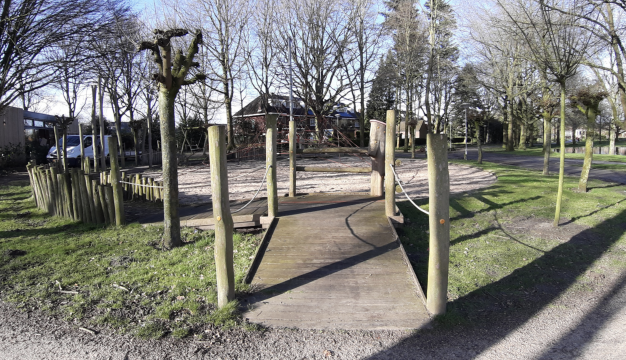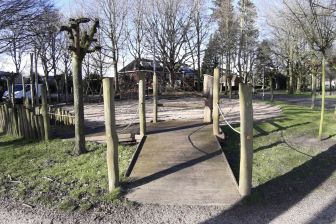
Giving children in temporary housing a chance to play
Play opportunities for children in temporary accommodation could be maximised – and ‘cities made more joyful ‘ if youngsters themselves are given a say in how decisions are made.
That was one of the standout conclusions of a new report which puts the spotlight on the challenges of providing meaningful play opportunities for children living in temporary accommodation.
It was put together by the Reach Alliance, an international partnership of universities and companies which examines how and why particular programmes and schemes – in this case centred on play – do not get to the hard-to-reach social groups and communities.
This latest report, A Place to Play: Children’s Play Needs in England’s Temporary Housing, looks specifically at what families living in temporary accommodation have to contend with, particularly in ensuring there is enough time, resources and space for their children to play.
Based on a variety of interviews conducted both with families living in temporary accommodation and professionals working in multiple sectors, the report details the extent to which play is considered in the areas of health, housing, policy, education and the ‘lived experience’.
England has a ‘long running housing crisis’, says the report, which was recently accelerated into a ‘new and damaging phase’, made worse by the rising cost of living. Moreover, ‘social safety nets are straining to match the growing need for affordable, decent accommodation’.
These factors, say the report’s authors, are ‘hampering the development of an entire generation’, citing the fact there are some 130,000 children living in temporary housing in England. Following on from previous studies on children in temporary housing which began during the COVID lockdowns, this new report is based on interviews with three families and 16 professionals.
“Although it is well researched that living in temporary accommodation is harmful for children’s development, both physically and psychologically, there has been very little attention to children’s need for play in these cases,” says the report.
‘Most saw playgrounds as essential infrastructure’
It adds: “By placing children at the forefront of proactive decision-making, interviewees felt that cities might evolve to be safer, collaborative and more joyful,” before highlighting the view of one academic who called for play to be given ‘a civic identity’, where the built environment and public space ’embody playfulness across age groups.
The report examines the issues under various contexts, including housing, child development, and play & temporary accommodation. It highlights the research approaches taken, findings and, crucially, proposals for change and what lessons have been learned.
Most of those interviewed made it clear that they saw outdoor playgrounds as a key neighbourhood facility, and also felt that playgrounds were essential infrastructure.
Click here for the full report (PDF format).
The Reach Alliance was created in 2015 by the University of Toronto’s Munk School of Global Affairs & Public Policy, in partnership with Mastercard’s Center for Inclusive Growth. Its university network now includes: Ashesi University, the University of Cape Town, Tecnológico de Monterrey, Singapore Management University, University College London, University of Melbourne, University of Oxford, and University of Toronto.



